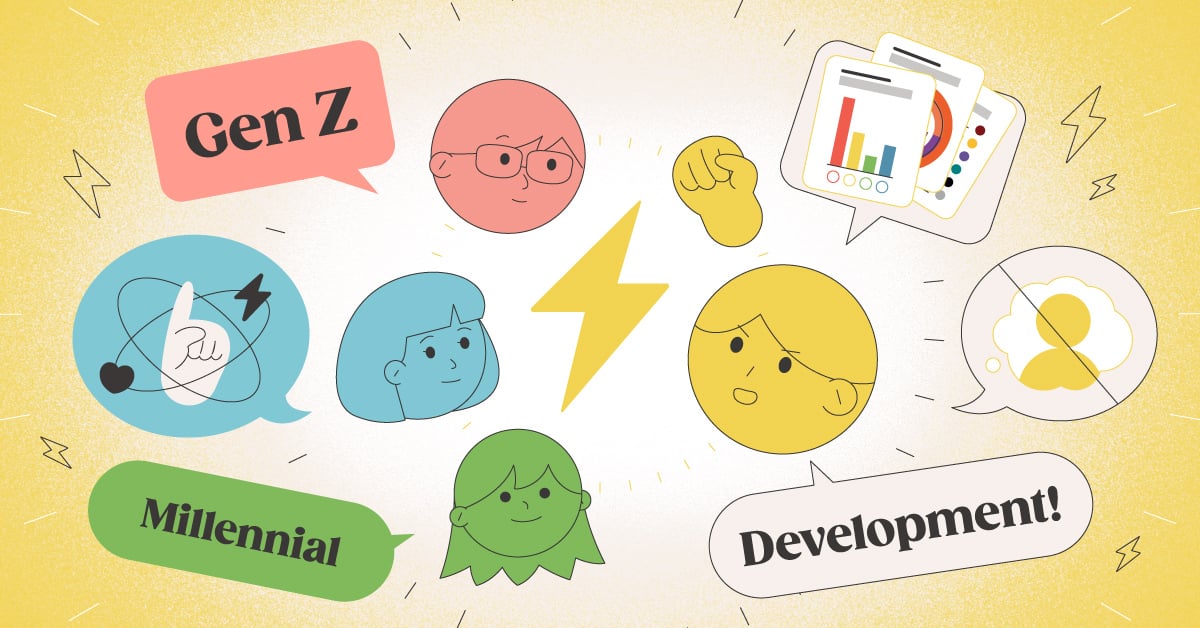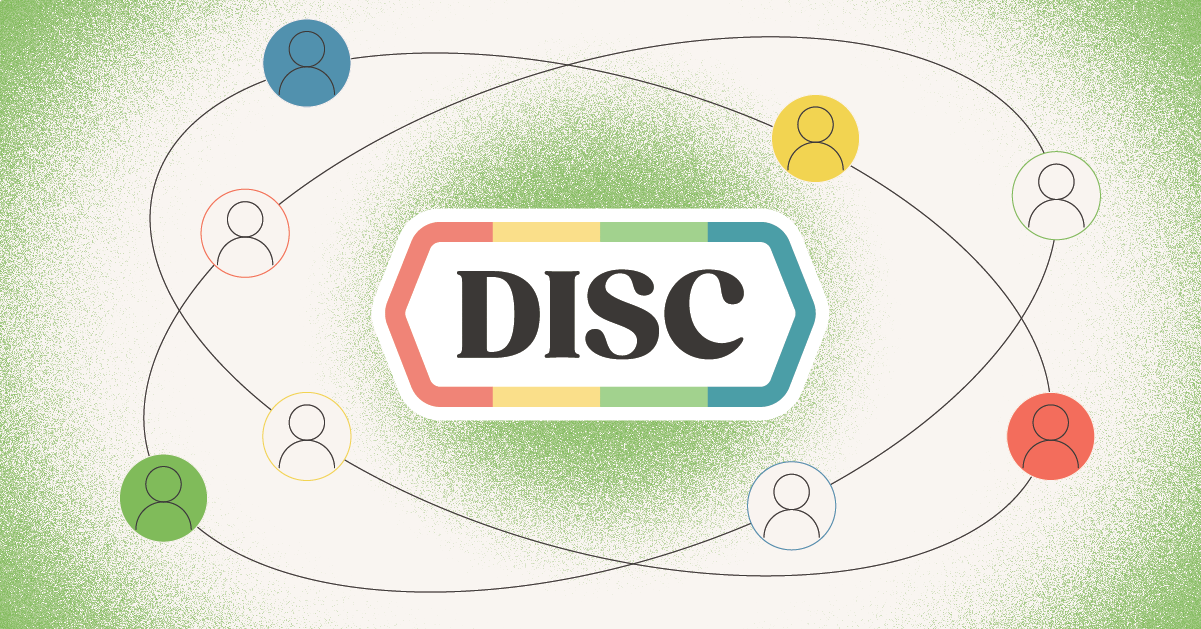
If you want to add pre-employment assessments to your hiring strategy, you need to choose the right tool for the job. Choosing an assessment depends on the information your organization needs to know about job candidates. Some questions to consider are…
- How does the job candidate prefer to communicate?
- How developed is the candidate’s emotional intelligence?
- What motivates the job candidate? Will they be passionate about the role?
Each of those questions can be answered by a different assessment, and using multiple assessments at once can address multiple considerations at once.
Here are the TTI assessments most often used in the hiring process.
DISC: How You Do What You Do
TTI’s DISC assessment measures how a person does what they do through four behavioral factors: Dominance, Influence, Steadiness, and Compliance.
It explores observable behavior and reveals how a person will perform, including how they prefer to communicate, what they will bring to a team, their ideal environment, and possible limitations they may face.
The DISC assessment is the only offering available at TTI that was not created in-house. It first appeared in its earliest form in the 1960s and is based on William Marston's behavioral theory.
One of the areas that TTI innovates in is our measurement of the behavioral continuum, considering both the high and low scores of each factor.
Many assessment providers only focus on the factor where someone scores highest, while ignoring low scores. This approach is reductive and ineffective at gathering the whole picture of an individual’s behavior.
For example, if an individual has a Dominance score of 75, but a Compliance score of 8, many providers would consider that person a ‘high D’ and base their assessment results on that. In actuality, their primary behavioral style is Pioneering, or a low C.
By examining every element of DISC and how those scores interact with one another to reveal behavior, TTI’s DISC assessment provides both the big picture and the detailed insights.
TTI also provides two graphs in each DISC assessment. One is the Natural graph, which shows an individual’s natural behavior, or how they prefer to do what they do. The other is the Adapted graph, which shows how an individual adapts their behavior to fit the situation they are in.
This feature is particularly important for hiring managers and leadership because it lets you know exactly how good the fit is for a position. If an individual’s Adapted score matches their role, but that adaptation is far from their Natural score, they are at a higher risk of burning out. In contrast, if an individual’s Natural graph aligns well with their job, they will be more engaged, productive, and successful.
The 12 Driving Forces: Why You Do What You Do
The 12 Driving Forces assessment measures the motivation and strength of those motivations behind behavior. Put simply, it measures why you do what you do.
The 12 Driving Forces provides unique insight into what drives an employee or candidate, which allows for more accurate hiring, established KPIs, and an assessment of cultural fit.
The assessment measures an individual’s scores in six motivators, which are Knowledge, Utility, Surroundings, Others, Power, and Methodologies. These six motivators are divided into two polar opposite scores; an individual lands somewhere along a continuum between those two scores.
This 12 Driving Forces assessment is a powerful resource for improving work performance, launching personal and professional development, creating a talent pipeline, and, of course, making effective hiring decisions.
By gaining access to this knowledge, as well as a shared vocabulary, leaders can tap into the real motivations of their team members. When work aligns with passion, every aspect of work improves.
Emotional Quotient: 5 Factors of Emotional Intelligence
The demand for emotional intelligence in the workplace is on the rise and will only continue to increase in the new world of work.
TTI’s EQ assessment was created in 2008 to break this complex concept down into five measurable factors.
- Self-Awareness is the ability to recognize and understand your moods, emotions, and drives.
- Self-Regulation is the ability to control or redirect disruptive impulses and moods, and the propensity to suspend judgment and think before acting.
- Social Awareness is the ability to understand the emotional makeup of other people and how your words and actions affect others.
- Social Regulation is the ability to influence the emotional clarity of others through a proficiency in managing relationships and building networks.
- Motivation is a passion to work for reasons that go beyond the external drive for knowledge, utility, surroundings, others, power, or methodology, and is based on internal drive or propensity to pursue goals with energy and persistence.
Emotional intelligence is key to creating strong relationships, minimizing conflict in the workplace, and developing yourself and your team.
DNA (Competencies): 25 Essential Skills
The Competencies assessment measures the development of 25 personal skills (or soft skills) required in any job, ranking them from ‘developed’ to ‘needs development’.
Our research has shown that, for many jobs, personal skills are just as important as technical skills in producing superior performance. Personal skills are often transferable to different jobs, whereas technical skills are usually more specific. This assessment identifies a candidate’s top personal skills as well as areas that need improvement.
DNA is an assessment tool that can help determine whether a candidate has the skills needed for a specific job. This makes it an excellent pre-employment assessment; you don’t have to guess at your potential employee's skill set. The assessment results clearly lay out their experience and points of development.
So what exactly are those 25 Competencies?
- Appreciating Others
- Conceptual Thinking
- Conflict Management
- Continuous Learning
- Creativity and Innovation
- Customer Focus
- Decision Making
- Diplomacy
- Employee Development/Coaching
- Flexibility
- Futuristic Thinking
- Goal Orientation
- Influencing Others
- Interpersonal Skills
- Leadership
- Negotiation
- Personal Accountability
- Planning and Organizing
- Problem Solving
- Project Management
- Resiliency
- Self Starting
- Teamwork
- Time and Priority Management
- Understanding Other
This report can ensure two things: the right fit and job satisfaction. It gives you a honed-in insight into the skills and potential challenges of your team members and potential hires.
ACI (Judgement): Intellectual & Emotional Reasoning
The ACI Report measures how a person thinks or perceives information.
Based on a science called Axiology, ACI (or Acumen Capacity Index) measures the capacity and clarity of understanding the world and self, while revealing the blind spots that are created by emotional biases.
Acumen is assessed using three dimensions of thought, analyzing both world and self-views:
- Intrinsic (feeling)
- Extrinsic (doing)
- Systemic (thinking)
This assessment is more in-depth and extensive than others, which makes it a great pre-employment assessment for candidates applying for a leadership role. The insights revealed through ACI help strengthen problem-solving skills, enhance decision-making, and optimize performance and potential.
TTI’s Multi-Science Approach
TTI is unique because our assessments can be used in combination. We call this our multi-science approach. By using multiple assessments to measure different aspects of a person’s personality, it helps individuals, teams, and organizations unlock deeper understanding, engagement, and development.
Multiple sciences progressively reveal more about a person—what they do, how they do it, and why they do the things they do. Our approach also measures the presence and absence of behavior, as well as acceptance and avoidance, giving you the full picture for pre-hiring assessments.
How Can We Approach Job Assessment Tests?
There’s a reason why so many people use pre-employment assessments! They give employers instant insight into their candidates, and those insights make for more confident, informed hiring decisions.
While assessments shouldn't be the sole factor in your decision-making process, they are a powerful complement to your talent acquisition strategy. When used thoughtfully, they help you match the right person to the right role, streamline onboarding, boost engagement, and set your team up for long-term success.
Ready to use pre-employment assessments in your hiring process? TTI can help.



